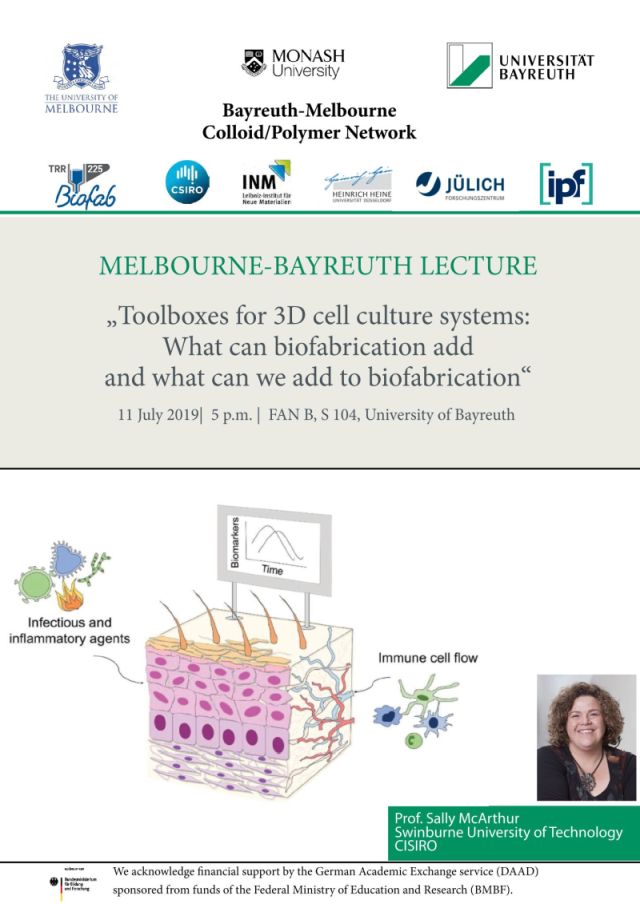News
Melbourne-Bayreuth Lecture
01.07.2019
On July 11th 2019, our network member Prof. Dr. Sally McArthur will give a presentation as part of the Melbourne-Bayreuth-Lecture during the Bayreuth International Summer School.

The conventional approach to cell culture uses 2D surfaces to attach and grow cells on tissue culture polystyrene (TCPS). These systems are used to examine the fundamental biological pathways of disease, evaluate the cytotoxicity of biomaterials, explore biochemical pathways and model wound healing (to name just a few). While these systems are central to much of our current research paradigm, it is well established that they fail to reproduce many of the cell-cell signalling and external cues experienced by cells in tissue.Research over the last 5-10 years has shown that cell behaviour in 2D varies significantly from that in 3D, with variations in a range of properties including cell shape, gene profile and migration behaviour. Critically, cells in 2D culture have restricted lifespans making it difficult to undertake long-term studies.
There is increasing demand for reproducible and predictable 3D in vitro models that effectively replicate the tissue of interest and will enable the evaluation of biomaterials and smaller implantable devices. These systems need to
- replicate specific physical and biochemical aspects of the biological system.
- be readily manipulated to address specific research questions or target specific biological pathways
- be reproducible, scalable and critically, validated against the gold standards.
This talk will explore how the 4D Cell Culture team at CSIRO and Swinburne is developing materials, devices, sensors and imaging toolboxes for implementation in 3D cell culture and taking them into the 4th dimension for real time monitoring of the systems as they develop, grow and are in turn used as platforms for biomaterials testing. We will explore how these concepts may be translated into the monitoring of biofabricated tissues and how biofabrication could become the basis for the fabricating 4D cell culture systems.
